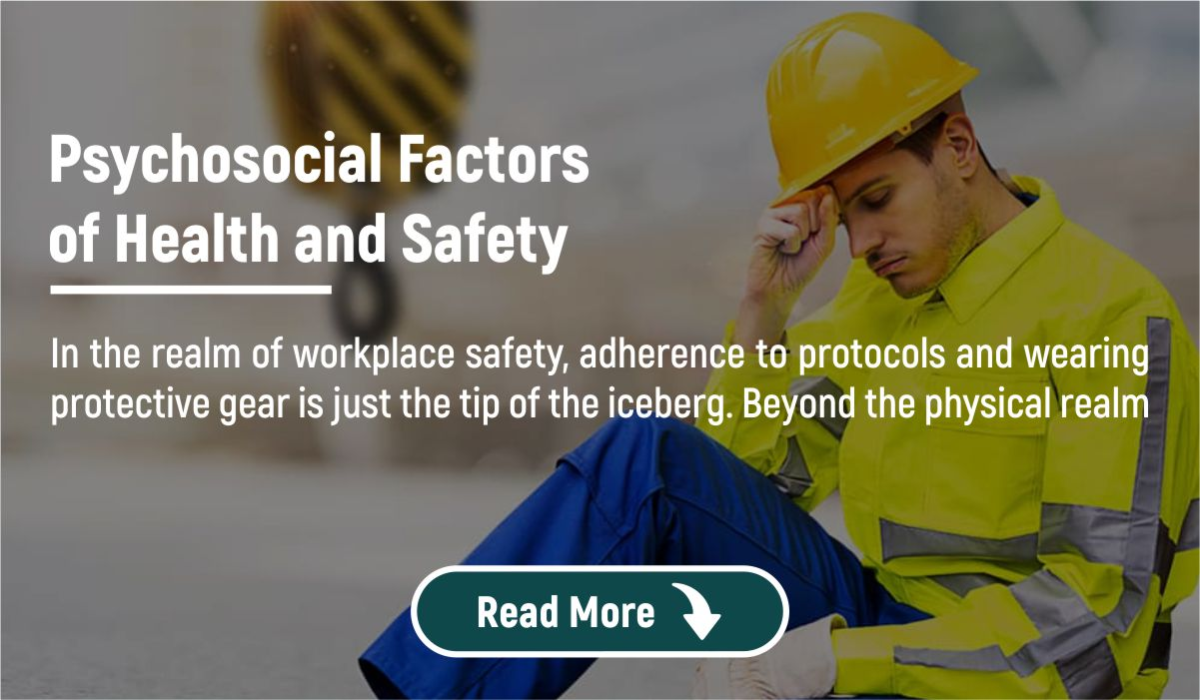
Psychosocial Factors of Health and Safety
In the realm of workplace safety, adherence to protocols and wearing protective gear is just the tip of the iceberg. Beyond the physical realm lies an often underestimated yet influential aspect: psychosocial factors. These elements, such as work pressure, job satisfaction, and interpersonal dynamics, wield considerable influence over our well-being in the workplace.
Before delving deeper into this subject, it's crucial to recognize that workplace health and safety encompasses more than mere hazard control and regulatory compliance. There exists a profound psychological and social dimension that demands attention. Here, the NEBOSH Diploma, a renowned qualification in occupational health and safety, emerges as a linchpin. Globally recognized, it empowers individuals to navigate the intricate relationship between physical and psychological factors, ensuring holistic safety in the workplace.
Impact of Psychosocial Factors
Let's explore the layers of psychosocial factors and their profound implications for health and safety:
Work Pressure: The Silent Menace
Imagine grappling with tight deadlines, an ever-growing workload, and relentless performance expectations. While common in many workplaces, such conditions serve as breeding grounds for stress and burnout. Elevated levels of work pressure not only jeopardize mental well-being but also impair decision-making and heighten the risk of accidents. Effectively managing workloads is paramount to mitigating these hazards.
Job Satisfaction: The Catalyst for Engagement
It's widely acknowledged that content employees are more productive. Job satisfaction significantly influences attitudes toward safety practices. When employees feel valued, engaged, and content in their roles, they are more inclined to adhere to safety protocols and actively participate in hazard prevention efforts. Conversely, dissatisfaction and disengagement breed complacency and indifference toward safety, endangering everyone's well-being.
Interpersonal Relationships: Fostering Collaboration, Not Conflict
Humans are inherently social beings, and the quality of interpersonal connections in the workplace profoundly impacts overall welfare. Positive relationships foster trust, cooperation, and transparent communication, creating an environment conducive to proactive safety measures and constructive conflict resolution. Conversely, toxic relationships breed tension, stress, and animosity, hindering effective safety management.
Fostering Health and Safety in the Workplace
Understanding the intricate interplay of these psychosocial factors is pivotal in cultivating a safe and healthy workplace. By addressing work pressure, enhancing job satisfaction, and nurturing positive relationships, organizations can cultivate environments where employees thrive, and safety prevails.
While technical expertise and regulatory compliance are indispensable aspects of workplace health and safety, the human element must not be overlooked. The NEBOSH Diploma serves as a guiding light, equipping professionals with a deeper understanding of the psychosocial factors shaping our well-being at work.
